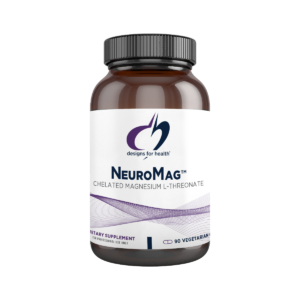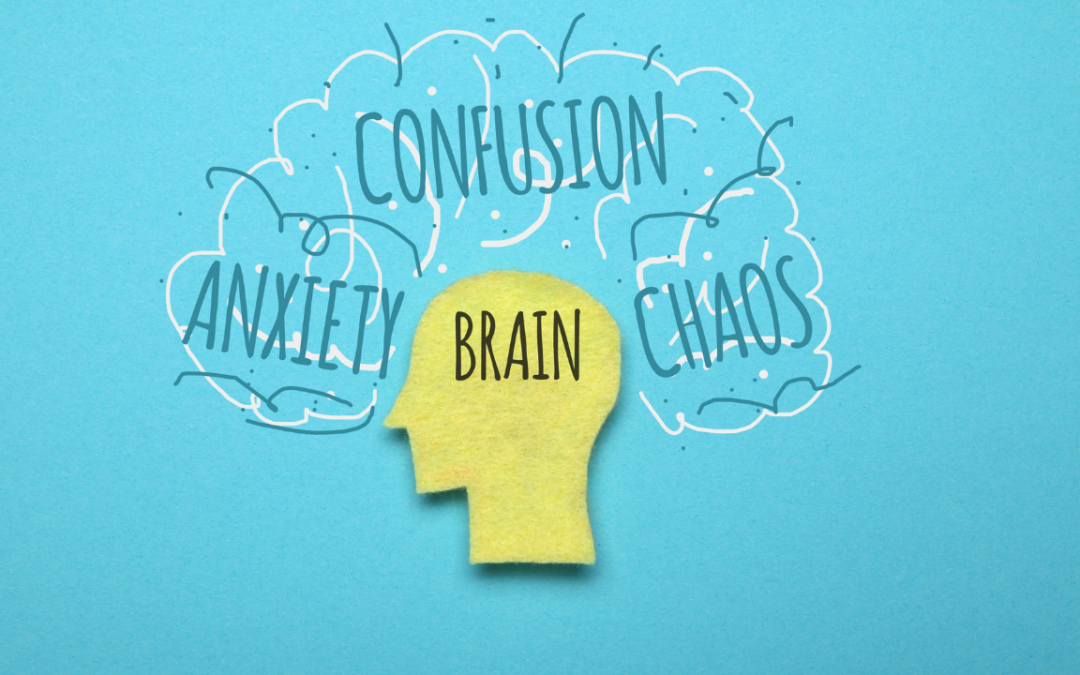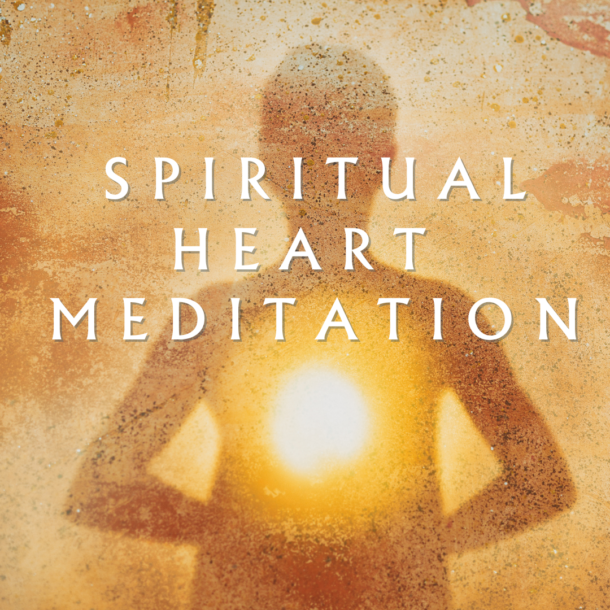Most people think of anxiety as a panic attack. However, anxiety often manifests in much more subtler ways. From an eastern philosophy perspective, any time you are not in a state of peace you are experiencing a form of anxiety. From this perspective, our true nature is peace and therefore if we aren’t experiencing peace it is because you are operating beliefs and engaging in behaviors that remove you from your natural state of being.
“Anxiety is the mind and body’s reaction to stressful, dangerous, or unfamiliar situations. It’s the sense of uneasiness, distress, or dread you feel before a significant event. A certain level of Anxiety helps us stay alert and aware, but for those suffering from an anxiety disorder, it feels far from normal – it can be completely debilitating.” says Tanja Jovanovic, Ph.D.
7 questions to help you determine if you have anxiety:
- Do you feel very anxious or worry about a lot of things?
- Do you think your worry is excessive?
- Do you worry more days than not?
- Have you been worrying like this for the past 6 months?
- Is it hard for you to control your worries?
- Have you noticed any physical symptoms such as restlessness, feeling tired easily, trouble concentrating, irritability, muscle tension, or trouble sleeping?
- Does your worrying negatively impact your ability to function, like at school, work, with friends, with family, or in other areas that are important to you?
If you answer yes to one or more of these questions, it is likely you are suffering from a form of anxiety.[1] Many of us often do not realize that our default state of being is an anxious state of being.
Almost 20% of the United States population — 40 million adults — are affected from anxiety disorders – so, if you have anxiety, you are not alone.
Unfortunately we’ve been trained into taking drugs or other substances to calm us down rather than truly addressing the root cause of our symptoms. Medications can be very helpful, I’m certainly not against them, but I am for getting to the root cause.
So today, I want to share some natural ways to control your anxiety from the inside out. But first, let me give you a little insight into how anxiety might show up for you and what the consequences of heightened, chronic states of stress have on your body and brain.
Signs and Symptoms of Anxiety:
Physical Symptoms –
- Tense neck and shoulders
- Muscle or back tension
- Racing heart rate
- Sweaty palms
- Shortness of breath
- Feeling like you can’t breath or your chest is tight
- Sleep problems
- Feeling wired
- Stiffness in the body
- Poor digestion
Physical symptoms are signs that the nervous system, which is directly influenced by what’s going on in our mind, is under stress, i.e., not in a state of peace. So in general, if you are suffering from any of these physical symptoms or any chronic disease, you could say you have anxiety.
Behavioral Symptoms –
- Easily distracted and disorganized
- Cannot start or complete tasks
- Compulsive behavior – repeated hand-washing, compulsively twisting your hair, repeatedly tapping your foot on the ground when seated, i.e., nervous ticks
- Obsessive, intrusive thoughts – constantly worrying about staying clean, or about your body size, what to wear, what will happen in the future or has happened in the past.
- Procrastination or avoidance because of overwhelm
- Compulsively seeking distractions – electronics, video games, social media, swiping on our phone.
- Compulsively seeking too soothe oneself with substances – marijuana, alcohol, smoking
When anxiety becomes chronic
Anxiety is both a symptom of stress and a form of stress which activates your body’s stress response resulting in the release of stress hormones such as adrenaline and cortisol. These hormones are designed to give you a quick boost of energy, they put you in that fight-or-flight mode. The problem is you can trigger this state simply with your thoughts alone. So when you are constantly worrying, you’re putting yourself in this state.
When this state becomes chronic your cortisol levels remain elevated and over time, chronically high cortisol levels, create hormonal imbalances, wear down your gut, decrease your immunity, increases your blood pressure and belly fat, drive sugar cravings, and raise insulin levels –and force the blood flow out of our pre-frontal cortex into the fear centers of the brain. This last one is essentially what makes us dumb. We lose our executive function, short term memory formation and rational thought processing.
Five Anxiety Hacks to heal your anxiety from the inside out:
1) Check Your Thyroid
This one is a big one, especially if you’ve suffered predominantly from physical symptoms of anxiety. I have repeatedly found working with a large number of mental health clients that panic attacks are very often driven by imbalanced thyroid hormones.
I know, you’re thinking to yourself – I’ve had my thyroid checked and I’ve been told I’m fine.
The truth is, comprehensive thyroid testing is rarely done and many MD’s don’t have the expertise to interpret what each of the top 9 thyroid markers indicate. Check out my blog on this here.
Most of you have had, at the very least, your TSH (Thyroid stimulating hormone) tested. If TSH is below 1, this can indicate you have subclinical hyperthyroidism. A reading like this can lead to physical symptoms, such as increased heart rate, tightness in your chest, shortness of breath, and insomnia, that gets labeled as a “panic attack” or “anxiety” when in fact you are experiencing hyperthyroid symptoms.
TSH levels can wax and wane from high to low, especially in the earlier stages of Hashimoto’s disease (autoimmune of thyroid, the majority of hypothyroidism is caused by Hashimoto’s). So If you are experiencing anxiety or other thyroid related symptoms even though your TSH levels are in the “normal” range, you will want to measure it again and run a more comprehensive set of tests on your thyroid.
If your doctor will not order this for you, you can order “Thyroid Panel Complete + Thyroid Antibodies“ from this link and contact us so we can help you interpret the results. Some doctors are willing to order the tests but they may not know how to interpret the results
2) Skip the Caffeine and other Stimulants
The side-effects of coffee: nervousness, restlessness, trouble sleeping, fast heart rate, digestive problems, are very similar to the symptoms of anxiety. So if you’re already suffering from anxiety, coffee or caffeine can often make your symptoms worse.
In practice I see my clients who suffer from anxiety-like symptoms improve cognitively and energetically almost immediately when they give up caffeine. They think clearer and don’t suffer from that dip in energy in the late afternoon hours.
Use natural energy alternatives such as:
- MUD\WTR® – a coffee alternative made with organic ingredients celebrated by cultures young and old for their health and performance benefits. With a fraction of the caffeine found in coffee, you get focus, energy and immunity without the jitters.
- Arbonne Fizz Sticks – Fizz sticks deliver the natural replacement for the morning coffee you need to help you make it through the day.
- Jing Soda tinctures – Jing Soda® is made with all organic fruit and plant concentrates and infused with immune-supporting super herbs that nurture and replenish your life energy.
3) Don’t let your blood sugar crash
Whenever I’m working with someone who is dealing with mood issues, my first priority is to check their blood sugar. Spikes in blood sugar, either too high or too low, can cause dramatic alterations in mood. This used to happen to me — I’d get hangry, really grumpy and had a difficult time concentrating, if I skipped a meal. I had no idea it was because of low blood sugar.
Now that my blood sugar is balanced, I can go long periods between meals and I remain stable energetically and emotionally, whew!
Here are some signs that your blood sugar may be imbalanced and driving your anxiety and even ADD, ADHD symptoms.
Blood Sugar Deregulation Symptoms:
- You experience a dip in energy mid-day
- You want to take a nap especially after high carb meals.
- You need something sweet following meals
- You become “Hangry” if you go too long without a snack or meal.
- You need to eat frequently
- You feel confused, irritable, spacey, angry, shaky, or have difficulty concentrating especially with too much time between meals.
- You have poor sleep, and may be waking up between 2-4am
If you feel you are experiencing these issues it is likely you have blood sugar dysregulation. Click here to read about how to balance your blood sugar, naturally.
4) Check your Digestive Health and Microbiome.
Research is showing us that what we would normally think of as brain-related disorders — anxiety, depression, memory and focus – have much more to do with what’s going on in our gut than in the brain. Or rather, what is going on in the gut is what is causing the “brain” disorder.
The gut microbiome influences our health in many ways. I’d be hard pressed to find a chronic health condition that doesn’t involve the gut. This is why I always work on the gut even if someone isn’t complaining of digestive symptoms.
The microbiome is communicating with the brain through several mechanisms: hormones, neurotransmitters, your immune system and your enteric nervous system – a massive network of neurons embedded in your gastrointestinal tract that communicates with the brain through the vagus nerve.[3]
When your gut health and microbiome are not optimized all or some of these mechanisms can be compromised resulting in mood and cognitive issues.
Here’s some of the ways the gut might interfere with your brain and body.
- 20% of your Thyroid hormone gets converted by your gut microbiome into its active form. This means your sluggish or overactive thyroid may actually be caused by unhealthy digestive system.
- 90% of serotonin ( your calming neurotransmitter) is manufactured in your gut. If you digestion isn’t optimized you may be struggling with mental health challenges and just need to improve your digestion. [7]
- There is 400x more melatonin in your gut than in your pineal gland. Melatonin is your natural sleep aid and there’s a strong connection between increased anxiety and poor sleep.[6]
- Elevated levels of the bacteria clostridia have been shown to block your body’s ability to convert dopamine into norepinephrine. This can affect attention, focus, and memory formation, and if we don’t get good conversion to epinephrine it can also affect energy. In practice I see this often. Here’s a fascinating article about high levels of Clostridia bacteria and yeast and how it can interfere and cause serious neuropsychiatric symptoms.
Signs of poor digestive health
(make sure to read through, because many of these you might not think are related to poor digestive health).
- Gas, Bloating,
- Constipation, diarrhea or both
- Acid reflux, burping
- Food Sensitivities
- Thyroid issues
- Adrenal fatigue
- Joint pain/Arthritis
- Headaches/Migraines
- Skin conditions
- Weight gain
- Irritable Bowel Syndrome (IBS)
- Brain/ Mood issues
- Muscle pain
- Fibromyalgia
- Autoimmune disorders
- Fatigue
A healthy microbiome is a diverse microbiome. To improve the diversity of your microbiome, it’s important to eat a variety of vegetables and plenty of fiber. Eat what’s in season, local and a variety of colors. The fiber and colors in whole foods are what feeds the healthy microbes. Shoot for at least 35 g/day of fiber.
If you suspect you have digestive system issues you can work with a Functional or Integrative health provider to do some functional lab tests such as the GI Map to help identify what might be contributing to your symptoms.
5) Check for Nutrient Deficiencies
Poor digestive health means poor absorption. So even if you are eating a “healthy diet” you might not be digesting your food well enough to extract the nutrient from the food and if your gut lining is compromised you may not be absorbing the nutrient from the food.
Furthermore, our industrial farming practices include genetically modifying our food and using herbicides and pesticides, causing our soil to become depleted of essential minerals needed for important biological functions. “Essential” means our body doesn’t make them and so we need to get them from our environment.
Modern man is overfed but undernourished.
Without these important nutrients, bodily proteins, which are responsible for all of the functions in our body, cannot do their job, hence we don’t feel well.
Magnesium (Mg) is an essential mineral required by over 300 biochemical reactions required to maintain homeostasis [3]. The biological functions of Mg are broad and include the production of nucleic acids, energy production, insulin release, muscle contraction and nervous system regulation.
Yet Dietary intake of Mg has been shown to be insufficient in sixty-eight percent of Americans [4] .
Symptoms of magnesium deficiency symptoms:
- insomnia
- loss of appetite
- nausea and vomiting
- weakness and fatigue
- pins and needles
- muscle spasms and/or shakiness
- anxiety or hyper-excitability
Our stress pathways require magnesium. So the idea is that if we are chronically stressed and these pathways are active we are burning through a lot of Mg. But if two-thirds of us are also deficient in Mg to begin with — well– you can see why we feel anxious!
To illustrate this point, one research study measured urinary excretion of Mg in college students before and after college exams. They found that the excretion of magnesium via urine was higher after the stress of the test.[5]
There are a number of ways in which you can replete your body’s magnesium.
- Consume foods high in Magnesium – Pumpkin seeds, almonds, spinach, cashews..
- Although the evidence isn’t that strong, Epson Salt Baths are a great way to get some magnesium each night and induce relaxation. Look for a product that is 100% magnesium sulfate
- Magnesium supplements. There are a number of different forms of magnesium. Magnesium oxide, magnesium citrate, magnesium L-threonate, and magnesium glycinate. While magnesium oxide has the highest amount of elemental magnesium it is not that well absorbed. Magnesium L-threonate is the only form that has been shown to cross the blood-brain barrier.
 Research demonstrates that elevating brain magnesium through supplementation with magnesium L-threonate may be useful in supporting cognitive abilities and decreasing common age-related memory decline.*
Research demonstrates that elevating brain magnesium through supplementation with magnesium L-threonate may be useful in supporting cognitive abilities and decreasing common age-related memory decline.*
Magnesium -Magnesium threonate helps to relax muscles especially if you feel tense during the day and/or before bed. 300-400mg is a good amount to start with. May cause loose stools.
If you have gut issues, I suggest using a gel or lotion for better absorption.
REFERENCES:
7. Banskota S, Ghia JE, Khan WI. Serotonin in the gut: Blessing or a curse. Biochimie. 2019 Jun;161:56-64. doi: 10.1016/j.biochi.2018.06.008. Epub 2018 Jun 14. PMID: 29909048.
6. Bubenik GA. Gastrointestinal melatonin: localization, function, and clinical relevance. Dig Dis Sci. 2002 Oct;47(10):2336-48. doi: 10.1023/a:1020107915919. PMID: 12395907.
5. Grases G., Anxiety and stress among science students. Study of calcium and magnesium alterations. Magnes. Res. 2006;192:102–106.
4. King D.E., Mainous A.G., 3rd, Geesey M.E., Woolson R.F. Dietary magnesium and C-reactive protein levels. J. Am. Coll. Nutr. 2005;243:166–171.
3. Swaminathan R. Magnesium metabolism and its disorders. Clin. Biochem. Rev. 2003;242:47–66.
2. Furness JB. The enteric nervous system and gastrointestinal innervation: integrated local and central control. Adv Exp Med Biol. 2014;817:39-71. doi: 10.1007/978-1-4939-0897-4_3.
1. https://www.anxiety.org/do-i-have-anxiety
* These statements have not been validated by the Food and Drug Administration.


